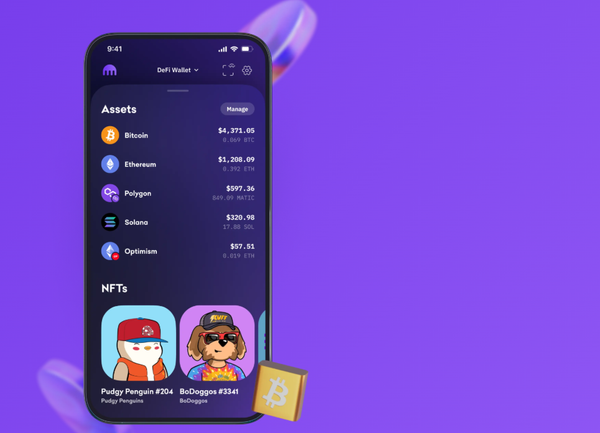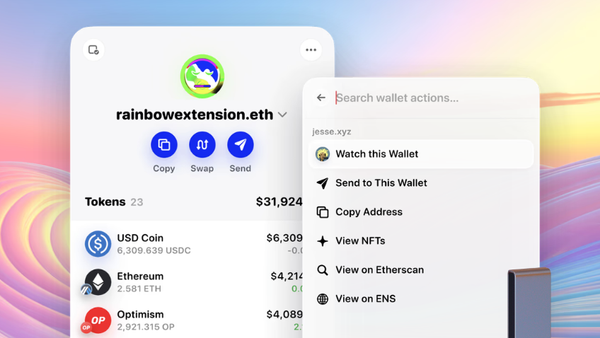Unlocking Web3 Communication: 11 Free Messenger Solutions and Libraries
Table of Content
A Web3 messenger is a communication platform built on decentralized, blockchain-based technologies rather than traditional centralized servers. These messengers aim to offer enhanced security, privacy, and user control over data.
They leverage the principles of Web3, which emphasize decentralization, peer-to-peer interactions, and trustless systems.
How a Web3 Messenger Works
1. Decentralization
Web3 messengers operate on decentralized networks, often utilizing blockchain or peer-to-peer (P2P) protocols. This eliminates the need for a central authority or server to manage and store messages, reducing points of failure and vulnerabilities.
2. Encryption
End-to-end encryption is typically employed to ensure that only the communicating parties can read the messages. This encryption is applied on the user's device before the message is sent, and only the recipient's device can decrypt it, ensuring privacy and security.
3. Identity and Authentication
Users authenticate using cryptographic keys or decentralized identifiers (DIDs). These keys are often stored in digital wallets, which users manage themselves, providing control over their identity and reducing the risk of identity theft.
4. Smart Contracts
Some Web3 messengers use smart contracts to facilitate additional functionalities, such as group chats, message delivery confirmations, and integration with other decentralized applications (dApps). Smart contracts are self-executing contracts with the terms directly written into code, running on the blockchain.
5. Data Storage
Messages and data can be stored in a decentralized manner using distributed ledger technologies or decentralized storage solutions like IPFS (InterPlanetary File System). This ensures data integrity, availability, and censorship resistance.
6- Interoperability:
Web3 messengers often aim for interoperability with other Web3 services and platforms. This means users can seamlessly interact with various decentralized services, such as financial transactions, NFTs, and more, all within the same ecosystem.
Benefits of using Web3 Messengers
- Enhanced Privacy: User data is not stored on central servers, reducing the risk of data breaches and unauthorized access.
- Censorship Resistance: Decentralized networks make it difficult for any single entity to censor or control the communication.
- User Control: Users maintain control over their identities and data, fostering a trustless environment where intermediaries are minimized.
- Security: Strong encryption and decentralized storage protect against common vulnerabilities found in centralized systems.
Using Web3 for Healthcare and Telemedine
Web3 technology holds transformative potential for healthcare and telemedicine by leveraging decentralization, enhanced security, and patient-centric control. In healthcare, patient data privacy is paramount, and Web3's end-to-end encryption ensures that sensitive information remains confidential and secure.
Decentralized networks eliminate the risk of single points of failure and reduce vulnerabilities to cyberattacks, safeguarding medical records and communications.
Additionally, blockchain's immutability ensures the integrity and accuracy of patient data, providing a reliable, tamper-proof record that is essential for maintaining accurate medical histories.
For telemedicine, Web3's decentralized identifiers (DIDs) and cryptographic keys empower patients with control over their own data, allowing them to grant and revoke access as needed. This enhances patient autonomy and trust in telehealth services. Furthermore, Web3's interoperability facilitates seamless integration with other decentralized applications (dApps) and healthcare systems, enabling efficient data exchange and coordination among healthcare providers. This interoperability is crucial for delivering comprehensive and coordinated care, especially in remote or underserved areas.
Censorship resistance is another critical advantage, ensuring that healthcare services and communications remain accessible without interference. Blockchain's transparent and auditable nature helps healthcare organizations maintain compliance with regulatory requirements and conduct thorough audits when necessary.
By reducing operational costs through the elimination of intermediaries and central servers, Web3 technology offers a cost-effective solution for healthcare organizations, ultimately enhancing the accessibility, efficiency, and security of healthcare and telemedicine services.
Web 3.0 Messengers, Protocols and Libraries
1. dm3
dm3 Protocol enables decentral, open, and secure messaging based on established web3 services like ENS and IPFS.
It follows the following principles:
- Decentral: A dm3 client must be realizable as a real decentral application and the messages must also be stored in a decentral way.
- Open: All parts of dm3 are open source and the protocol is permissionless. Everyone should be able to write a dm3 client.
- Secure: All messages are end-to-end encrypted and the encryption keys are only under the control of the user.
2. Session
Session is a Web3 messenger designed to offer secure, private, and decentralized communication. It leverages blockchain technology and decentralized networks to provide end-to-end encrypted messaging, ensuring that users' communications remain confidential and secure. Unlike traditional messengers, Session does not rely on central servers, which eliminates single points of failure and reduces vulnerabilities to cyberattacks.
Users of Session authenticate using cryptographic keys, granting them full control over their identity and data. This decentralized approach enhances privacy and reduces the risk of identity theft. Session's architecture also ensures data integrity and immutability, providing a reliable and tamper-proof communication record.
Session supports interoperability with other decentralized applications (dApps), enabling seamless integration and interaction within the broader Web3 ecosystem. This feature is particularly useful for maintaining coordinated communication across different platforms and services.
3. Whispr
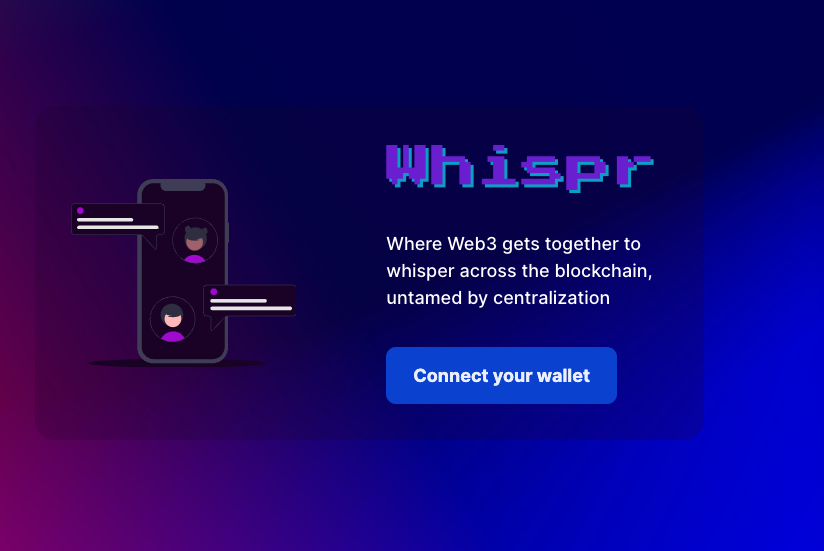
Whispr is an open-source Web3 messaging web app named Whispr. It leverages blockchain technology for secure, decentralized communication, ensuring privacy and data integrity. Whispr integrates with XMTP for messaging and uses Dynamic for secure authentication via crypto wallets.
The app features an intuitive user interface, full responsiveness across devices, and an impressive 99.2% test coverage. Known for its decentralization, Whispr eliminates single points of failure, enhancing data availability and resilience.
The app can be easily deployed at Vercel.
4. Matrix
Matrix stands out as a stellar Web3.0 messenger by leveraging its decentralized protocol to ensure secure and private communication. Unlike traditional messaging platforms, Matrix operates on a federated network where no single entity controls the data.
This decentralization enhances privacy and resilience against censorship, making it ideal for secure conversations.
With end-to-end encryption, Matrix guarantees that only the intended recipients can access the messages. Additionally, its interoperability allows seamless integration with various platforms, promoting a unified and versatile communication experience in the Web3.0 ecosystem.
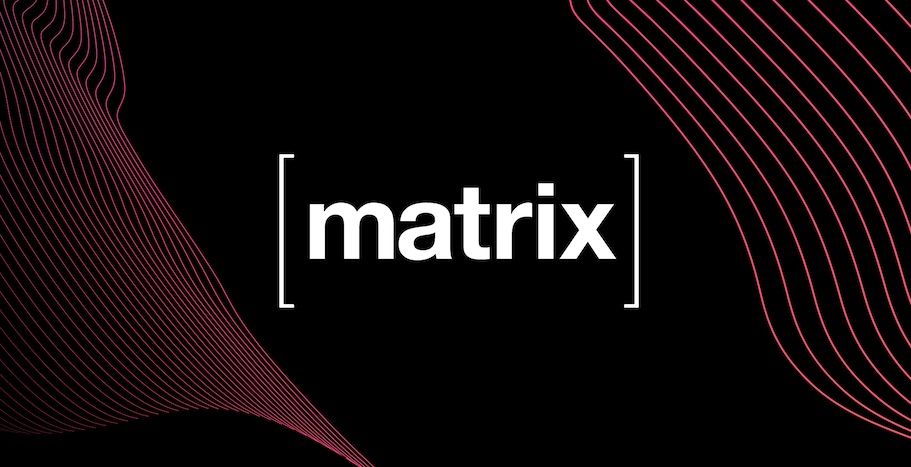
5. Tingl
Tingl is a free and open-source web3 messenger for exclusive chat privacy.
Features
- Enabled or disabled messaging history
- Supports mobile number
- Email address
- Avatars
- Enable message editing
- Better contacts management
- Supports video calls
- Within the app you can get paid easily with crypto

6. Adamant
ADAMANT is a decentralized anonymous messenger based on the blockchain system. It’s independent of any governments or corporations, and even developers due to the distributed network infrastructure that contains an open-source code.
The ADAMANT blockchain system belongs to its users. Nobody can control, block, deactivate, restrict or censor accounts. Users take full responsibility for their content, messages, media, and goals and intentions of using the messenger.
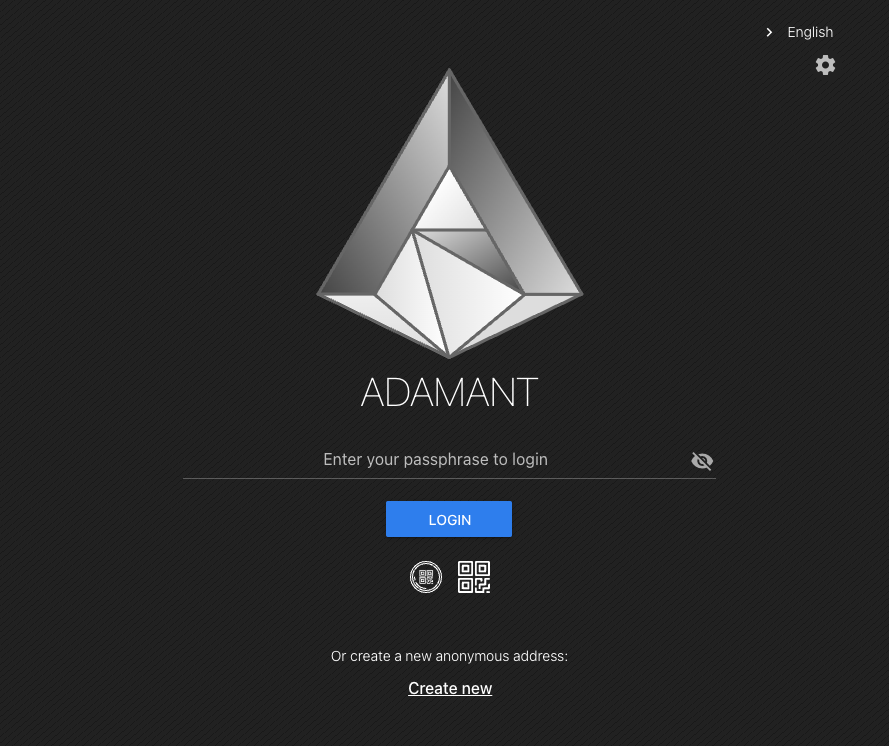
7. Instant Messaging Chat Room Application with Metamask Wallet
This is a free and open-source simple chat application with Web3 (Metamask) wallet connection. Real-time messaging using web sockets. Web3 capabilities are limited to only wallet at the moment.
8. Web3 Chat App React Native
9. Web3 Messenger
Web3 Messenger is a simple web3 app build using ReactJS and solidity. In this app you can send messages to me and stand a chance to win free ethereum tokens. Winners will be picked up randomly.
The project's smart contract is deployed in Rinkeby (ETH Testnet) Blockchain. It can be easily deployed on Vercel.
10. Relay Receiver (React Library)
Relay Receiver is a React library that makes it easy to add Web3 messaging to your website.
Features
- 🔥 Out-of-the-box wallet-to-wallet messaging, to a site admin or between users.
- ✅ Easily customizable, with nice defaults.
- 🦄 Built on top of XMTP
11. Ylide Protocol
Ylide Protocol is an open-source cross-chain wallet-to-wallet communications solution for Web3 projects. We anticipate that for the mass adoption of the Web3 it is crucial to have native decentralized and secure communications layer.





